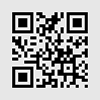
33
2.2. Hydraulic connection
Installation of safety valve included in the package is necessary.
Do not install any cut-off valve between the safety valve and the inlet of the tank and do not block the drain hole of
the safety valve.
Demountable connectors should be used for the water heater connection to the water supply system.
2.2.1. Standard connection (Fig. 1)
With standard connection, the heater is operated under the pressure defined by the pressure level in the main supply line.
Safety valve supplied (A in Fig. 1) must be installed on the cold water inlet of the water heater (the inlet tube is marked with
the blue collar). It is recommended to turn the safety valve no more than 3-4 turns, providing sealing with fluoroplastic tape,
flax, or other water-proof sealing material.
Connect the inlet of the safety valve to the cold water line with a flexible hose. If necessary, mount a cut-off valve.
Connect a pipe or a hose for hot water removal to the draw-off point to the hot water outlet of the water heater (the outlet
tube is marked with the red collar).
For easy maintenance, it is recommended to install a "T" piece union (B in Fig. 1) between the inlet and safety valve of the
water heater. This "T" piece union will help to drain water from the water heater without turning the safety valve.
To facilitate the access of air into the tank when draining water, it is recommended to install an additional "T" piece union
equipped with a cut-off valve (D in Fig. 1).
2.2.2.
In the heating mode, the drain hole of the safety valve may drip water. To drain this water, a drain hose is used which
must be laid with a downslope. The temperature in the area where the drain hose is laying must not drop below 0˚C. If the
water pressure in the water line is close to the actuation pressure of the safety valve, a reducer must be installed upstream of
the safety valve. To avoid clogging of water fittings or shower heads, debris and dirt must be removed from the pipes.
2.2.3.
For some models due to their design, installation of hydraulic connections, including installation of the safety valve,
may be done only with the removed plastic cover of the water heater. After installation of the hydraulic connections this
cover should be put back in place fixed with its screws.
2.2.4.
Connect the water heater inlet and outlet only with pipes or fittings that are able to withstand temperature in excess of
80˚С at a pressure exceeding that of the working pressure. Therefore, we advise against the use of any materials which
cannot resist such high temperatures.
2.2.5.
In addition, it is recommended to connect the hose for water drain (C in Fig. 1). This hose allows directing drained
water from the water heater into the sewer or other place of your choice.
2.2.6. Connection to open tank (Fig. 2)
Water is supplied to the heater from the tank by gravity. For this purpose the tank water outlet "T" piece union supplying
water to the heater and other places must be installed higher than the water heater top. Safety valve is not necessary in this
type of connection.
2.3. Electrical connection
Electrical wiring should be done by a competent person, ensuring it complies with safety norms. The manufacturer
will not be held responsible for any damage caused by the incorrect earthling of the system or for fault defaults of
the electricity supply.
After the tank of the water heater is filled with water and the system is checked for leaks, plug in the moisture-proof electrical
plug of the water heater.
If the water heater is supplied without a power supply cable, use a cable featuring the same characteristics (type H05VV-F
3x1.5 mm², Ø 8.5 mm in diameter) for connection. The power supply cable should be threaded through the relevant hole on
the cover of the appliance and fixed to the terminal board. Then every wire should be fixed in place by the corresponding
screw.
The water heater must be earthed. The earth cable (of yellow-green colour and longer than that of the phases) should be
fixed to the terminal marked by the symbol . Block the power supply cable using the wire clamps.
Make sure that the power supply voltage conforms to the value indicated on the data plate of the water heater. Use cables of
appropriate section.
To disconnect the unit from the electrical supply use a bipolar switch conforming to CEI-EN standards with contact opening
at least 3 mm. It is recommended to install fuses in the electricity supply circuit.
"T" piece unions, extension cords, and adapters are not allowed. Do not connect the earthling cable of the appliance to water
and gas pipes.
